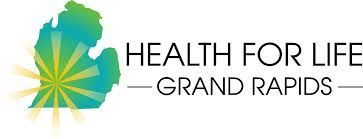The Power of Distraction

We often think of distractions as negative. We may get distracted by all the to-dos on our list, and it’s hard to stay focused on work or give our full attention to someone. Our kids may get distracted while getting dressed, or for older kids maybe it’s while doing homework. But let’s reframe distractions. They […]
2022 Reflections

2022 Reflections: Whew! Our word of the year for 2022 was changed. Gold Coast announced an expansion for day and overnight postpartum support to Northern and Southwest Michigan in April. Alyssa Veneklase transitioned from co-owner to subcontractor at Gold Coast in August. She still leads the Becoming A Mother course with Kristin and teaches at […]
Transformed by Postpartum Depression: Podcast Episode #110

Alyssa: Hi. Welcome to the Ask the Doulas Podcast. My name is Alyssa Veneklase. I am co‑owner of Gold Coast Doulas, and today, I have Jessica Kupres, one of our postpartum doulas, with us, and we are both so excited to talk to Dr. Ladd. She is the author of a book called […]
Audra’s Birth Story: Podcast Episode #105

Audra Geyer, Gold Coast’s newest birth doula, tells us her birth story and how birth support from her doula was a game changer. She also took HypnoBirthing classes and went from being afraid of labor to looking forward to it! Her experience with Gold Coast let her to become a doula herself! You can […]
Acupuncture for Anxiety: Podcast Episode #105

Kristin Revere, Co-Owner of Gold Coast Doulas talks with Vikki Nestico of Grand Wellness about acupuncture to help relieve stress, tension, and anxiety. You can listen to this complete podcast episode on iTunes or SoundCloud. Kristin: Welcome to Ask the Doulas with Gold Coast Doulas. I’m Kristin, and I’m here today with Vikki from […]
Acupuncture during Pregnancy and Postpartum: Podcast Episode #103

Dr. Carrie Dennie, ND speaks with Alyssa about the benefits of acupuncture during pregnancy and postpartum. You can listen to this complete podcast episode on iTunes or SoundCloud. Alyssa: Welcome to the Ask the Doulas Podcast. You are listening to Alyssa Veneklase. I am the co-owner of Gold Coast Doulas, and today, I am […]
Podcast Episode 100!

It’s the 100th episode! Alyssa and Kristin, co-Owners of Gold Coast Doulas, talk about what the past two and a half years of podcasting has looked like, how the podcast has changed, how the business has changed, how services have pivoted in the midst of the COVID-19 pandemic, and how they are playing their part […]
Hyperemesis Gravidarum

This post was written by Lauren Utter, a ProDoula trained Birth and Postpartum Doula with Gold Coast Doulas. Finding out you are pregnant can bring an array of emotions – planned pregnancy or not. Maybe you’re excited because you have been waiting for this day. Maybe you are surprised because a baby wasn’t on your […]
Parenting and Sleep: Podcast Episode #98

Laine Lipsky, Parenting Coach, talks with Alyssa today about the negative effects of sleep deprivation on children and parents. You can listen to this complete podcast episode on iTunes or SoundCloud. Alyssa: Hello and welcome to the Ask the Doulas Podcast. I am Alyssa Veneklase. I’m excited to be back with Laine Lipsky, parenting coach. […]
Mental Health Awareness Month: Podcast Episode #97

Dr. Nave now works with queens through her virtual practice Hormonal Balance. Today she talks to us about hormones and how they affect our mental health, including the baby blues and postpartum depression. You can listen to this complete podcast episode on iTunes or SoundCloud. Alyssa: Hi. Welcome to Ask the Doulas Podcast. I am […]
A Journey Unlike Any Other

To all of the couples who have had retrievals, transfers, and IVF schedules postponed or affected by the Corona virus outbreak my heart breaks for you. IVF is no small or easy journey; it takes a toll on your mental, emotional, and physical state. It’s beautiful and terrifying all at the same time. It’s expensive […]
Postpartum Recovery

Have you ever heard of an athlete getting back on the field after a major injury WITHOUT a period of rest followed by intense rehab? Of course not! But somehow the expectation for women after their pregnancy is to mysteriously “bounce back” to normal activity, appearance, and function without any guidance. Most mamas even attempt […]
Perinatal Mood Disorders: Podcast Episode #91

Today we talk with Elsa, a therapist at Mindful Counseling in Grand Rapids, Michigan who specializes in perinatal mood disorders. Learn what postpartum anxiety and depression look like, how they are different, and signs to look out for. You can listen to this complete podcast episode on iTunes or SoundCloud. Kristin: Welcome to Ask the […]
Stress Mastery: Podcast Episode #85

Deb Timmerman, RN, DAIS, CSME speaks with us today about her new certification in Stress Mastery. What does that mean, you ask? It’s all about learning positive ways to handle stress and actually master it, instead of letting stress take over. Listen to see how this can help parents throughout pregnancy and postpartum. You can […]
Preparing Your Body For Pregnancy: Podcast Episode #84

Dr. Nave now works with queens through her virtual practice Hormonal Balance. We talk this time about how a woman can prepare her body for pregnancy. You can listen to this complete podcast episode on iTunes or SoundCloud. Alyssa: Hello! Welcome to another episode of Ask the Doulas Podcast. You have Kristin and Alyssa here […]
How Sleep Deprivation Impacts New Parents

Becoming a parent is one of the most exciting and scary milestones of a person’s life. It’s likely your emotions will run the gamut from excited anticipation and joy, to fear of the unknown and uncertainty about what’s ahead and how you’re coping with parenthood. Managing night time feeds, tending to your baby throughout the […]
Supporting a Postpartum Mother: Podcast Episode #79

Elsa Lockman, LMSW of Mindful Counseling talks to us today about how partners, family members, and other caregivers can support a mother during those critical postpartum weeks to ensure she seeks help if needed. How do you approach a new mother and what are her best options for care? You can listen to this complete […]
Benefits of A Postpartum Doula and Why Should You Hire One?

Author Bio: Roselin Raj is a journalist and a writer. She has been writing extensively on health and wellness related topics for over a decade. Besides her professional interests, she loves a game of basketball or a good hike in her free time to fuel her spirits. “Health is wealth” is one motto of life […]
EMDR Therapy: An Overview

We are so excited to share this guest blog by Joshua Nave LLMSW and Paul Krauss MA LPC of Health for Life GR. We get asked frequently about EMDR Therapy, so read below to find out what it is and how it works! This blog is a discussion of the basics of what Eye Movement […]
Podcast Episode #69: Postpartum Fitness

Today we talk with Dr. Theresa, Chiropractor and BIRTHFIT Instructor in Grand Rapids, Michigan. We ask her about what’s safe for a pregnant and postpartum mom to be doing and why having a supportive tribe around is so important. You can listen to this complete podcast episode on iTunes or SoundCloud. Be sure to listen […]
Podcast Episode #68: Overnight Doula Support

Many of our clients and listeners don’t fully understand what overnight doula support looks like. Kristin and Alyssa, both Certified Postpartum Doulas, discuss the kinds of support their clients look for and how their team of doulas support families in their homes. You can listen to this complete podcast on iTunes or SoundCloud. You can […]
Technology and Mindfulness for New Parents

Technology is an amazing tool that we use daily for our work and personal lives, but it can also be the thing that drags us down. We need it, we love it, but we hate it. It’s time we take a good look at our data usage and figure out what’s draining us. Why not […]
Podcast Episode #62: Newborn Traumas

What is birth trauma and do all babies experience it? How can you remedy it? Dr. Annie and Dr. Rachel of Rise Wellness Chiropractic give us several examples of common birth traumas, what they mean, and how chiropractic care can help. You can listen to this complete podcast episode on iTunes or SoundCloud. Kristin: Welcome […]
Podcast Episode #60: A Naturopath’s Perspective on Pregnancy and Depression

Doctor Janna Hibler, ND talks to Alyssa and Kristin about how a naturopathic doctor treats pregnant and postpartum women, body and mind. You can listen to this complete podcast episode on iTunes and SoundCloud. Alyssa: Hello, welcome to Ask the Doulas podcast. I am Alyssa Veneklase, co-owner of Gold Coast Doulas, and I am here […]
